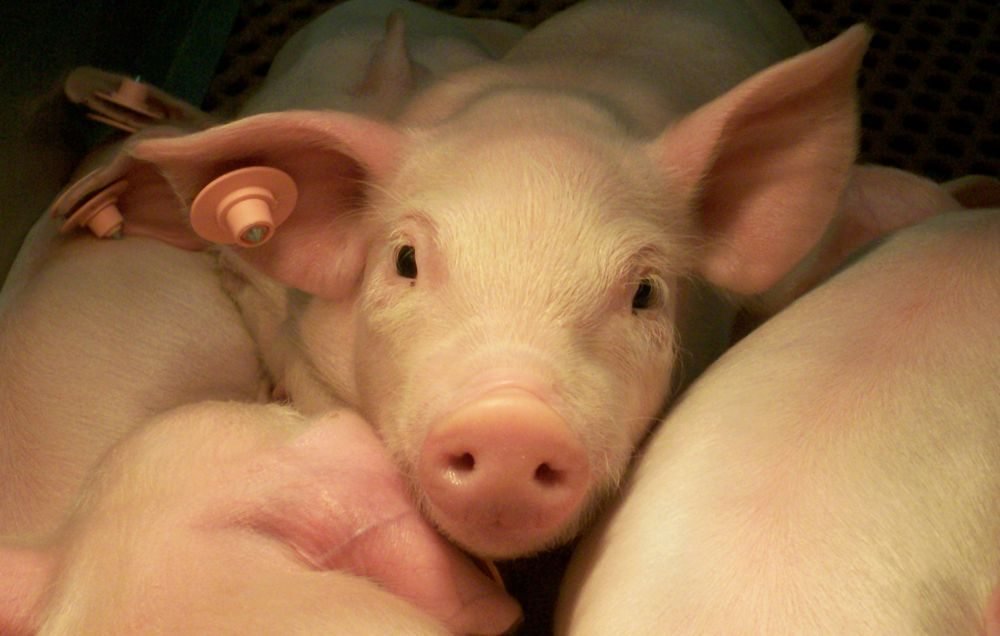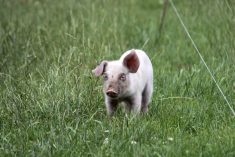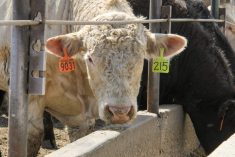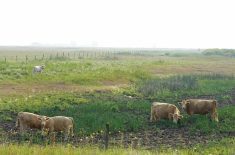CNS Canada — Hog industry officials are increasingly concerned how Manitoba producers will be impacted after another hog farm in southeastern Manitoba confirmed a case of porcine epidemic diarrhea (PED) on Saturday.
The province, which until last week hadn’t reported any new on-farm cases since January 2015, logged new cases in the southeast on May 26, June 2 and now June 4.
“When you get three cases in two weeks, it’s worrisome,” said Andrew Dickson, general manager of the Manitoba Pork Council. “It’s unsettling for the industry because if it got into farms across the province we’d see a loss in production and producers’ income will be down.”
Read Also
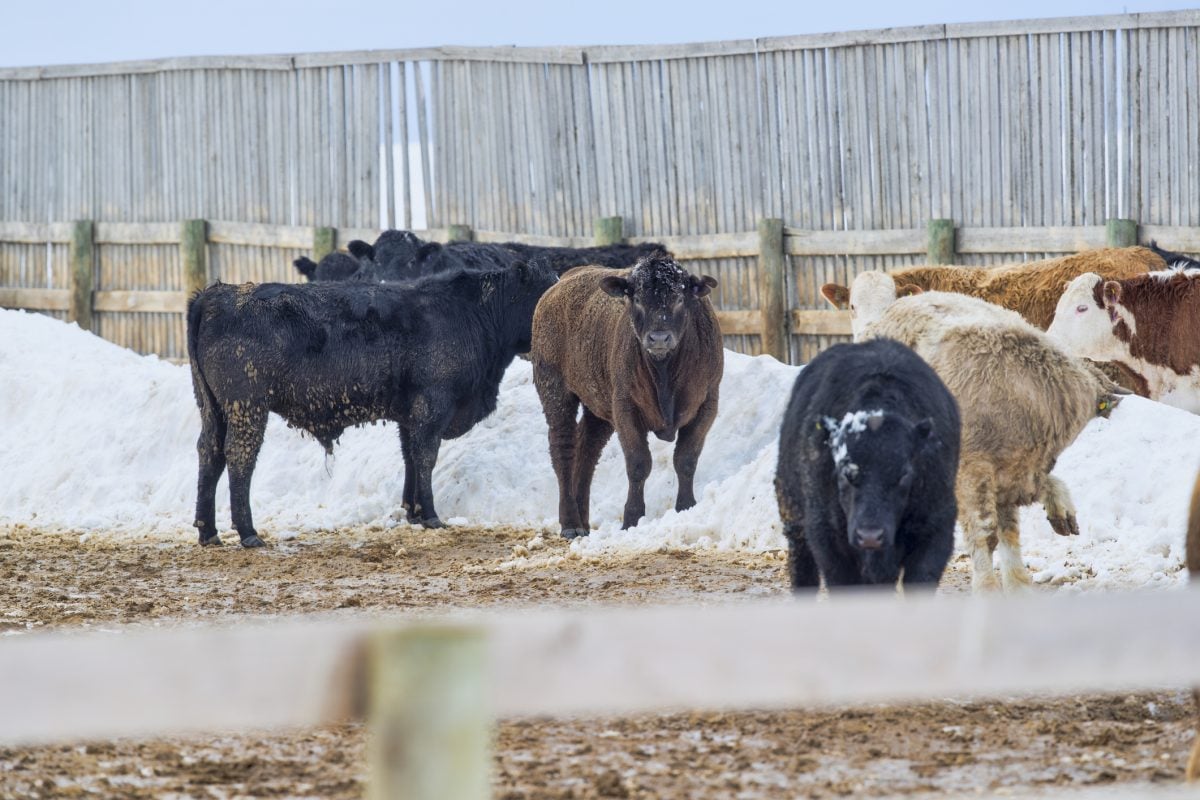
U.S. livestock: Cattle rally after screwworm scare
Chicago cattle made modest gains on Tuesday while lean hogs ended mixed to start a shortened trading week. Most-active April…
PED causes severe dehydration and diarrhea in pigs. Larger, fully grown pigs tend to recover, while younger pigs have an 80 to 100 per cent fatality rate, Dickson said. It is not transmitted to other animals or humans, and is not a food safety risk.
Producers in the U.S. have lost millions of hogs to PED since it was first detected in 2013. Dickson said about 50 per cent of U.S. hog farms have or have had the disease.
The good news with the U.S. having so many cases is the market has already adjusted, and since Canada’s market price is based on U.S. dollars, prices should stay the same, he said.
“While it is an individual concern for the producer, it’s not necessarily a market shock in Canada, price-wise,” said Gary Stordy of the Canadian Pork Council.
Right now, market prices for hogs are up, Dickson said. “If you’re selling a finished pig into the market, prices are pretty good.
“It’s $191 to $198 per pig, with another $10 to $12 on top of that to allot for weight and grading. Finished pigs at this time of year are always at their peak.”
Compared to the U.S., the number of farms affected by PED in Canada is still relatively low, but precautions need to be taken to keep it that way, Stordy said.
“Producers are encouraged to focus on maintaining a high level of security and awareness. We don’t want to see PED spread as rapidly and as far as it did in the U.S.,” Stordy said.
Ontario, which so far has seen the bulk of Canada’s on-farm PED cases, reported its most recent on May 16, and hadn’t previously logged any since the end of March.
All producers are vulnerable, Dickson said, reiterating the importance of awareness.
“Everybody’s got to be worried. These operations (affected) were well run, so everyone has got to make sure their security is super tight,” Dickson said.
The new Manitoba cases came about three weeks after a temporary project wrapped up that allowed hog transporters returning to Canada from the U.S. to clean their trucks on the Canadian side of the border.
Canadian Food Inspection Agency protocol now requires trucks to first be washed on the U.S. side, over the objection of industry officials who fear trucks have a greater risk of picking up the PED virus at U.S. truck washes.
“You put those two things together — more PED virus in the States and wash stations that aren’t as (clean) — there is a much greater chance for this virus to be brought into Canada if our transport trailers are in fact washed in the States,” Manitoba Pork chairman George Matheson said recently on the industry-backed program Farmscape.
It’s hard to say where the latest cases originated, he said, but added there seems to be some relation with the ending of the emergency transportation protocol.
— Erin DeBooy writes for Commodity News Service Canada, a Winnipeg company specializing in grain and commodity market reporting. Includes files from AGCanada.com Network staff. Follow Erin at @ErinDeBooy on Twitter.



